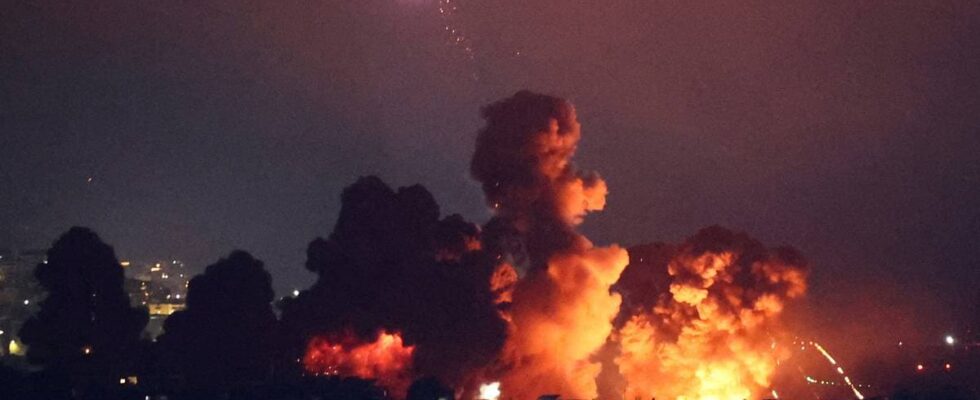– We live in constant uncertainty. The burden is great and the situation is very bad, says Lebanese Rakan Diab. He lives in the village of Ain Ebel in southern Lebanon, just a few kilometers from the Israeli border. The village is among 27 places in southern Lebanon that Israel told people to leave “immediately” on Tuesday this week, writes Le Monde. Rakan Diab’s family is one of many who have now been internally displaced. – I want my children to live in peace. Is that too much to ask for? That my children should grow, live out their potential and have dreams, asks the father of two. Lebanese Rakan Diab had to flee with his family from the village where they live. He says that people in Lebanon are very excited after the outbreak of war between Israel and Hezbollah. – They have to be on high alert around the clock and are scared, says Diab. Got 45 minutes to flee On Tuesday, Diab and the rest of the approximately one thousand inhabitants of the village were told that they had to evacuate. – We were told that we had 45 minutes to get away and move north, says Diab. Now he and his family are in the Matn area east of Beirut. This is the village of Ain Ebel, from which the Lebanese family had to flee. The picture was taken at the end of September. Photo: Rakan Diab Diab is the father of two children: a ten-month-old infant and a six-year-old boy. – The six-year-old is very strongly connected to our village. Even when the worst of the storm around the village has come, he has wanted to stay there. But it no longer works, he says. They don’t know when they can return home. – We don’t know if it will be weeks, months or years. Or if we even have a home to return to, says Diab. – Financially and physically, we are managing right now. But mentally it’s not going well, he adds. The village of Ain Ebel is located in southern Lebanon, a few kilometers from the border with Israel. – Don’t do much to help Diab also works for “Initiate”, a voluntary organization that works to strengthen Lebanon’s local communities. He says that the need in Lebanon has become great after the outbreak of war between Israel and Hezbollah. – Many refugees and internally displaced people do not have what they need. They lack very basic goods and services, such as food, water, electricity and shelter. More sleep on the streets, he says. The Lebanese blames the authorities in the country for not doing enough. – The response from the authorities has been too small. They don’t go out of their way to help. It will be up to humanitarian organizations and donors to cover the basic needs of people, because the authorities are failing us, he says. People in the border areas in southern Lebanon have had to flee from the attacks to Israel. This photo was taken at the end of September from the village of Ain Ebel. Photo: Rakan Diab He believes that the authorities should have been prepared for a situation like this. – They act as if this is the first time war has hit Lebanon. Since the outbreak of war in Gaza last year, the authorities have had a whole year to prepare for this. – On the brink of a humanitarian disaster, news has also spoken to the Lebanese Moussa Saleh (28). After the Israeli attacks, he has had to flee from place to place with his family in the capital, Beirut. – The last few weeks have been frightening and stressful, the 28-year-old tells news. First, the family had to leave the district where they lived in Beirut, to another district. Now they have moved again, to a place a little north of the capital. Schools are used as places of refuge, and they are full, says Saleh. They also lack equipment and heating there, according to the 28-year-old. – The war places the Lebanese people on the brink of a massive humanitarian disaster, he says to news. Asking the world for help When news asks Rakan Diab what he thinks about the future, he replies: – Lebanon is one of the few countries where you prefer to look back and wish that the past will become your future. We look back to the 60s and 70s, when Lebanon was considered the Switzerland of the Middle East, says Diab. He is begging the world to help the Lebanese people. – I know that Europe and the West are tired of sending support to developing countries like us. But we need you, says Diab. – There is no light at the end of the tunnel for us. Published 03.10.2024, at 23.27 Updated 04.10.2024, at 07.52
ttn-69
– I want my children to live in peace. Is that too much to ask for? – news Urix – Foreign news and documentaries

